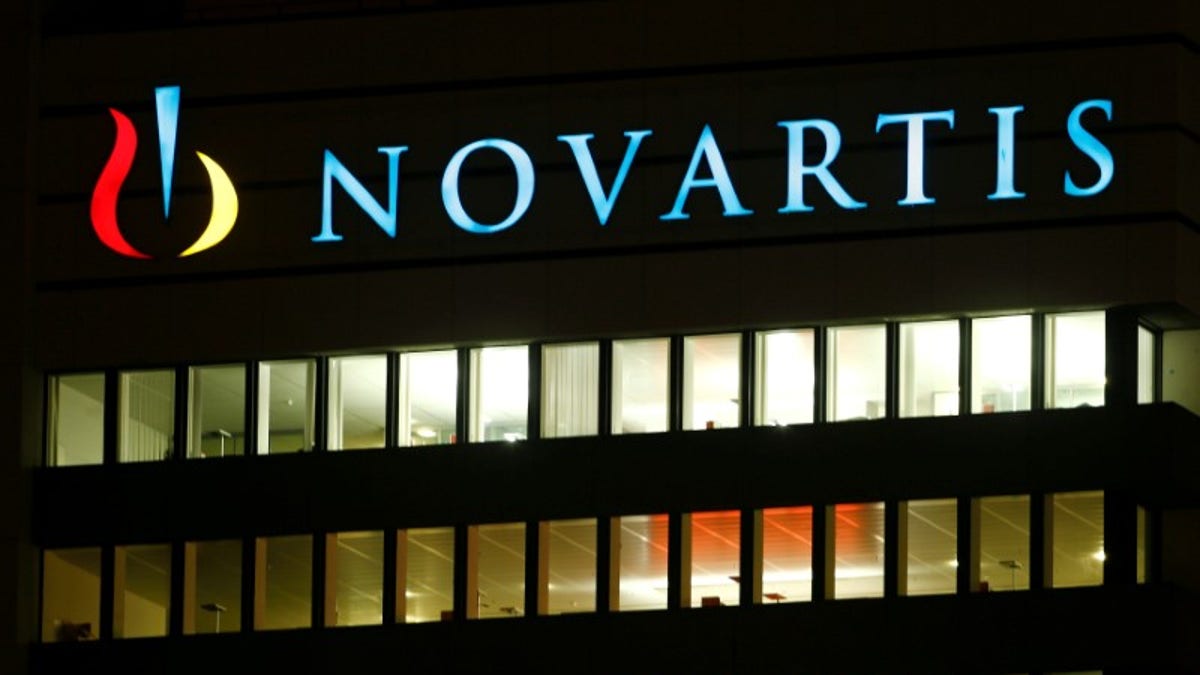
The logo of Swiss drugmaker Novartis AG is seen at its headquarters in Basel (Reuters)
ZURICH – Novartis AG on Wednesday said the U.S. Food and Drug Administration (FDA) has agreed to accelerate its review of the Swiss drugmaker's CTL019 therapy for young patients with B-cell acute lymphoblastic leukemia.
The move would keep Novartis on track with the development of its so-called chimeric antigen receptor T cell therapy, or CAR-T, in partnership with University of Pennsylvania researchers.
ZARA FOUNDER TO SPEND $344M ON BREAST CANCER-SCREENING FOR SPANISH HOSPITALS
The therapy involves a patient's own T-cells being altered in the lab to help the immune system find and kill cancer cells before being re-infused into the patient.
Basel-based Novartis' first CAR-T therapy license application with the FDA has put the company in pole position with regulators as it pushes for approval alongside rivals including biotech Kite Pharma Inc that are developing similar therapies.
"With CTL019, Novartis is at the forefront of the science and development of immunocellular therapy as a potential new innovative approach to treating certain cancers where there are limited options," Vas Narasimhan, Novartis head of drug development, said in a statement.
CTL019 will likely cost hundreds of thousands of dollars per patient if approved, and Novartis counts it among drugs it believes will eventually exceed $1 billion in annual sales.
DEVON AND LEAH STILL CELEBRATE TWO YEARS IN REMISSION
In a Phase II study, Novartis said 82 percent of patients infused with CAR-T cells achieved complete remission or complete remission with incomplete blood count recovery at three months after treatment. In December, Novartis estimated that 60 percent of those responders were relapse-free after six months.
The company plans to submit an application for market authorization with the European Medicines Agency (EMA) later this year.




















